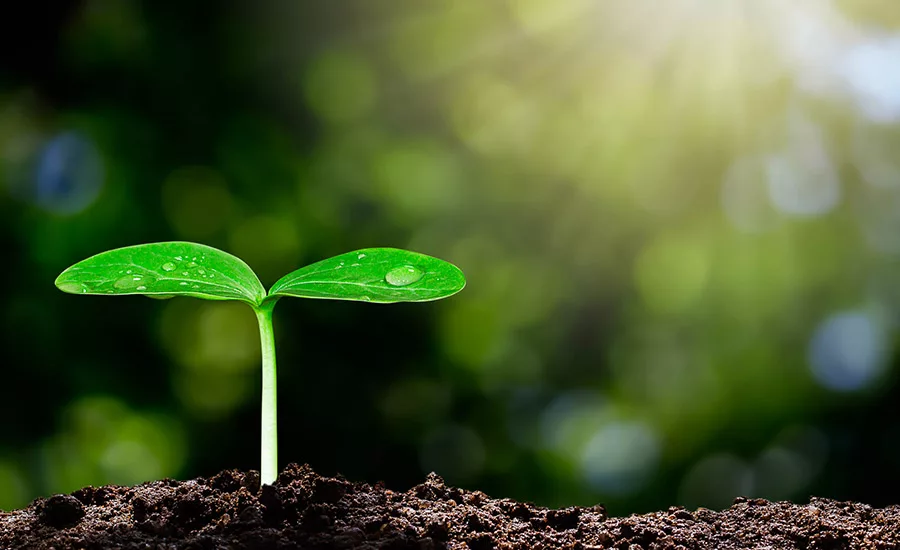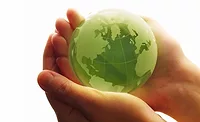Dow Issues Sustainability Report, Sets Targets to Drive Toward a Circular Economy
Dow’s new sustainability targets, which align to and build on its 2025 Sustainability Goals, include a number of initiatives.

Dow recently outlined progress and results aligned to its 2025 Sustainability Goals in its “2019 Sustainability Report.” This represents the 17th consecutive year that Dow has issued a report on sustainability. The company also announced new commitments to address both climate change and plastic waste.
“Today’s announcement is the next step in our sustainability journey that began more than 30 years ago,” said Jim Fitterling, chairman and CEO. “Climate change and plastic waste are among the greatest technical, social, and economic issues the world has ever faced, and our products and technology are critical to addressing both. At Dow, we have a responsibility and an opportunity to lead in addressing these global challenges. A sustainable future is attainable, but only if we continue to tackle these issues head-on, hold ourselves accountable, and work together to enable new science- and technology-based solutions that directly address both climate change and plastic waste.”
Dow’s new sustainability targets, which align to and build on its 2025 Sustainability Goals, include a number of initiatives:
- Protect the Climate—By 2030, Dow will reduce its net annual carbon emissions by 5 million metric tons, or 15% from its 2020 baseline. In addition, Dow intends to be carbon neutral by 2050, in alignment with the Paris Agreement. The company is committed to implementing and advancing technologies to manufacture products using fewer resources and that help customers reduce their carbon footprints.
- Stop the Waste—By 2030, Dow will help “stop the waste” by enabling 1 million metric tons of plastic to be collected, reused, or recycled through its direct actions and partnerships. The company is investing and collaborating in key technologies and infrastructure to significantly increase global recycling.
- Close the Loop—By 2035, Dow will help “close the loop” by having 100% of its products sold into packaging applications be reusable or recyclable. Dow is committed to redesigning and offering reusable or recyclable solutions for packaging applications.
In addition to actions Dow has already taken around the world to achieve its sustainability targets, the company confirmed it has entered into new renewable power agreements for its manufacturing facilities in Argentina, Brazil, Texas, and Kentucky, securing 338 more megawatts of power capacity from renewable sources, representing an expected reduction of more than 225,000 metric tons of carbon dioxide (CO2) equivalent. The company reports that it is on track to exceed its target to source 750 MW of renewable power capacity by 2025.
According to Dow, many of its products lower customers’ emissions more than the carbon emissions used to produce them, through lighter and more fuel-efficient autos, more energy-efficient buildings, and food that stays safe and fresh longer—all critical for a world set to add 2 billion people by 2050. Dow’s plastic waste goals are reportedly designed to ensure that its investments and collaboration, including its commitments to and investments in the Alliance to End Plastic Waste and Circulate Capital, have clear targets to stop waste from getting into the environment and to lead the materials science industry toward a circular economy.
“Reducing the impact of climate change and eliminating plastic waste are societal challenges that are closely linked,” said Mary Draves, Dow vice president and chief sustainability officer. “As a producer of technologies that are essential to a low carbon economy, we are developing and investing in new production processes that are low-emission and optimally efficient. And we’re now looking at waste as a resource that will enable us to continue to innovate sustainable materials.”
Dow will also collaborate with leading academics, NGOs, auditing experts, technology partners, and others in industry to incentivize the development and commercialization of low-carbon products and technologies that ultimately lower global greenhouse gas (GHG) emissions and to ensure that companies are able to account for those reductions. Dow reports that it will to share more information about this collaboration later this year.
As outlined in Dow’s “2019 Sustainability Report,” the company has made progress against its 2025 Sustainability Goals. For example, since 2006, Dow has reduced its GHG emissions by 15%, incorporated a carbon price into its business planning, and invested in renewable power capacity.
For more information, visit www.dow.com.
Looking for a reprint of this article?
From high-res PDFs to custom plaques, order your copy today!





